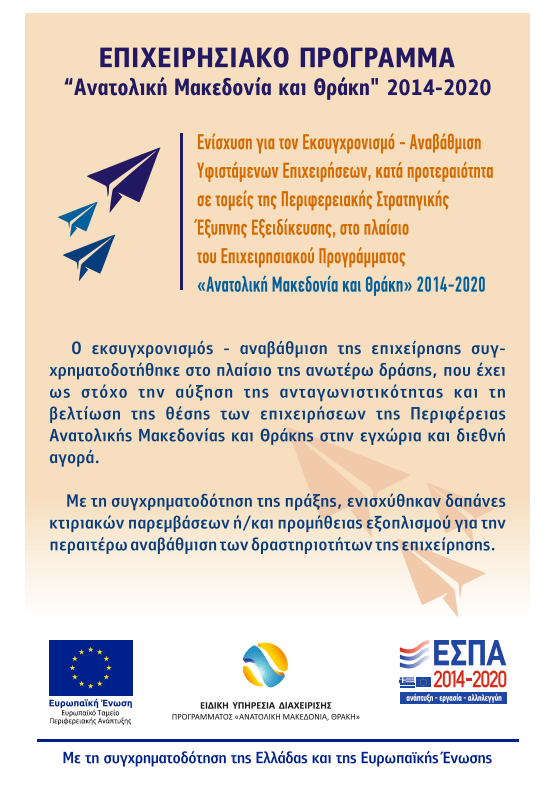Interplast manufactures a wide range of pipes for hot and cold-water plumbing installations. Como-pex pipes made of cross-linked polyethylene are manufactured in cross-sections ranging from 12mm to 32mm and are available in coils or straight sections.
They have an estimated lifespan of over 50 years, at temperatures up to 95oC and operating pressures 6 to 10 bar. Temperature peaks of 110oC at 4 bar pressure do not affect Como pex pipes as their cross-linked structure enables them to return to their original shape.
Como-pex pipes are manufactured with or without oxygen barrier and meet and exceed European standard EN 12318 and German DIN 16892/16893. The oxygen barrier pipes also meet DIN 4726 and are suitably designed for use in heating installations. The external EVOH layer prevents oxygen from entering the pipe and the consequent corrosion of the metal components of the system.
Certifications: SKZ Germany, CSA Canada, WRAS Great Britain, AENOR Spain, ZIK Croatia, ELECTROCERT Russia, SEPROKIIVBUD PROEKT Ukraine.
Tests: ELOT, General Chemical State Laboratory.
Guarantee: 30 years for the pipes and 10 years for the metal fittings as regards water tightness of connections, covered by the insurance company ALLIANZ, to a sum of up to € 3,000,000
| Temperature | Lifespan | Pressure | Safety coefficient |
|---|---|---|---|
| 20°C | 50 | 19.5 | 1.5 |
| 60°C | 50 | 13 | 1.5 |
| 80°C | 50 | 9.6 | 1.5 |
| 95°C | 50 | 8.2 | 1.5 |
They are designed for a lifetime of over 50 years, at temperatures up to 95º C and operating pressures of 6 to 10 bar. Temperature peaks of 110º C at an operating pressure of 4 bar do not affect Como-pex pipes.
Due to their networked structure, Como-pex tubes have a thermal memory that allows them to return to their original shape. Essentially, the internal structure of the material "remembers" the form it was given during production.
The material is resistant to most chemicals, even at high temperatures. Chemical substances that can cause deterioration or rupture in ordinary plastic pipes do not affect Como-pex.
Como-pex pipes show excellent resistance to corrosion even in areas where the water is very hard, remaining unchanged over time. Unlike metal pipes, they do not show any electrochemical corrosion. Also the high velocity of the water does not cause corrosion.
Cross-linked polyethylene pipes exhibit extremely high mechanical strength and impact resistance. For example, they are used as a protective cover in bearings for transporting very sharp objects in hard metal industries.
The structure of the material and the smooth texture of the surface ensure low friction losses resulting in low resistance and small pressure drop in the pipelines. For this reason, they make the installation more economical because for the same amount of water, pipes with a smaller cross-section and pumps with a lower power can be used. In the case of metals the combination of effects, friction and corrosion exacerbates the problem. For this reason networks made with plastic pipes are considered smooth flow networks.
Como-pex does not contain toxic substances. Sanitary and toxicological analyzes have ensured its approval for drinking water. The pipes are regularly checked by official institutes (e.g. State General Chemistry, WRAS-NSF Great Britain) for the taste, the smell, the growth of microorganisms, the extraction of substances and metals concerning public health (cadmium, arsenic, etc.). a.)
The Como-pex hydraulic system works quietly. The pipes have safe insulation for water flow speeds up to 1m/sec unlike metal pipes.
The pipes are regularly tested by official institutes for their mechanical strength (SKZ of Germany, AENOR of Spain, ELOT) and for their suitability for drinking water (WRAS of Great Britain, General State Chemistry). Como-pex oxygen barrier pipes, in addition to the above, are tested for oxygen permeability by the MPA.NRW of Germany.
Interplast guarantees for a period of 30 years with insurance coverage from the company Allianz, for damages caused by the possibility of an error in the production of the pipe, with a sum of money up to €500,000 per case and up to a maximum of €3,000,000 over the course of a year.













